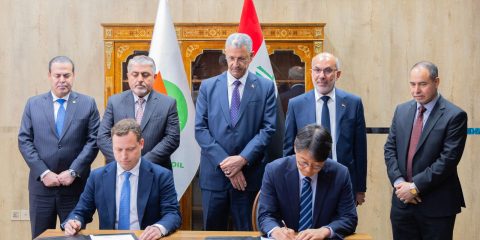Is the new national guard the key to unifying Iraq?
A wide range of armed forces beholden to different authorities outside the defense and interior ministries are spread across Iraq. This reality was not spawned by the occupation of Mosul by the Islamic State (IS) in 2014, but by the chaos and intersection of various agendas and interests. The current discussion surrounding the formation of […]Mushreq Abbas writes for Al Monitor:
A wide range of armed forces beholden to different authorities outside the defense and interior ministries are spread across Iraq. This reality was not spawned by the occupation of Mosul by the Islamic State (IS) in 2014, but by the chaos and intersection of various agendas and interests. The current discussion surrounding the formation of a National Guard is an acknowledgment of this reality and an attempt to create a legal framework to control the situation.
Unofficial armed forces have always been a formidable presence in Iraq alongside official forces, even under Saddam Hussein, whose son Uday announced the formation of a force called the Fedayeen Saddam in November 1994. At the same time, the Baath Party had an armed presence that was more influential than the police and also directly linked to Uday. It enjoyed more power than the other security apparatuses. After 2003, the situation became more complicated, as armed forces proliferated either under the banner of “resistance to occupation” or to protect communities. The Iraqi arena experienced a race to fill the void left by the absence of the Iraqi army on the one hand and to defend the interests of conflicting political and economic parties on the other.





